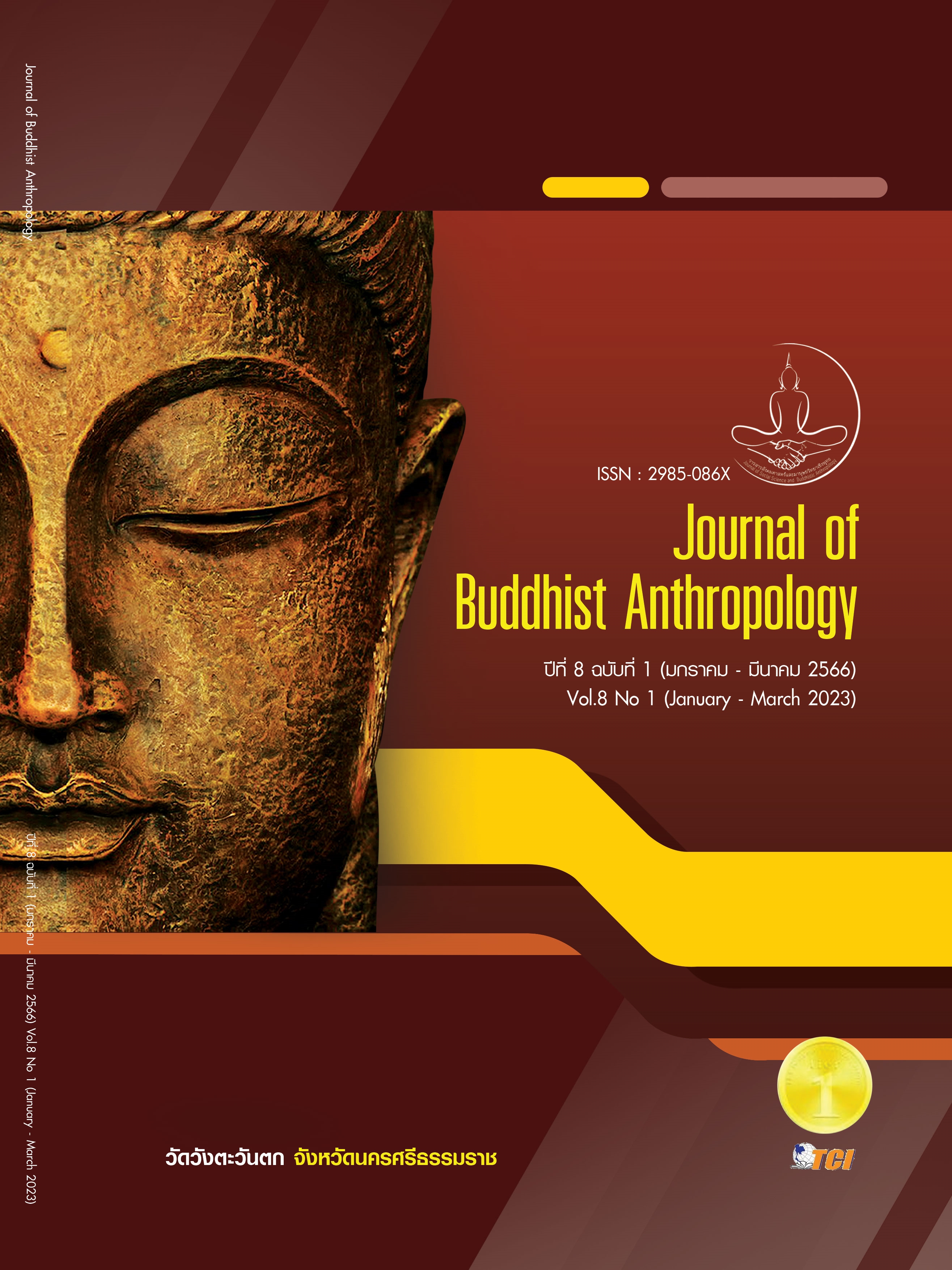BUDDHIST LEARNING FACILITATORS: BASIC CONCEPTS IN THE BUDDHIST LEARNING PROCESS
Keywords:
Facilitator, Buddhist Learning Process, Basic ConceptAbstract
Background and Objective: As the world progresses with modernized education and technology, the world is still chaotic and volatile from selfishness in human minds. Consequently, there is a question about the education method for developing the human mind and wisdom. The Buddhist learning process is presumably the solution and the medium of education that led humans to become absolute human beings. The Buddhist learning facilitators are responsible for organizing the learning process that is a bridge to learning the external and internal worlds to create harmony for body and mind. This qualitative research aims to find the basic concepts in the Buddhist learning process through the lessons learned from three Buddhist learning facilitators and Buddhist scriptures studies.
Methodology: The study employed a qualitative research method with interviews from three Buddhist learning facilitators and a literature review of the Buddhist scriptures.
Main Results: The results showed that the basic concepts in the Buddhist learning process has three fundamental factors: 1) The diagram of the Buddhist learning sequence, the goal of learning in the Buddhist way regarding The Four Noble Truths, it is a learning process that changes those who possess heretical belief (Michadtithi) to become those who have the Right Views (Sammadtithi) regarding the Eightfold Path, which leads the learner to a lifelong transformation that will bring peace and tranquility in mind; 2) The external factor, Kalyanamitta or Buddhist learning facilitators whose faith devotes to the Buddha's teachings, who embraces the teaching into practice themself as a role model and pass down the faith to the learners, making them become those who know and aware of the taste of the Dharma and become those who possess love, loving-kindness, and compassion; 3) The internal factor, Yonisomanasikara which is the wisdom that will bring one out of suffering to live in the world with understanding and happiness.
Involvement to Buddhadhamma: The basic concepts of the Buddhist learning process are concerned with the application of the Dharma principle, including The Four Noble Truths in planning lifelong learning, Threefold Training for self-discipline, the Right View concerned with learning from others, namely Paratoghosa or facilitators of Buddhist learning who follows the principles of the Noble Eightfold Path and self-learning with careful deliberation which is Yonisomanasikara.
Conclusions: The Basic concepts of the Buddhist learning process are learned through the lessons of Buddhist learning facilitators and they show the importance of applying Buddhist doctrines that are the core of human learning in a timely and timeless way. Educators should improve themselves to become Buddhist learning facilitators who can practice what they preach. They will give motivation to learners and encourage learners to comply.
References
Leicht, A., Heiss, J. & Byunet, W. J. (2018). Issues and Trends in Education for Sustainable Development. UNESCO Publishing.
Chutimathewin, J. (1999). Development Training. P. A. Living Co., Ltd.
Khaemanee, T. (2013). Science of Teaching: Knowledge for Effective Learning Process (17th ed.). Dan Suttha Printing Co., Ltd.
Knowles, M. S. (1975). Self-Directed Learning: A Guide for Learner and Teacher. Association Press.
Learning Reform Subcommittee. (2001). Learning Reform: Learners Matter (2nd ed.). National Education Commission and the Ministry of Education. Skybooks Co., Ltd.
Mahachulalongkornrajavidyalaya University. (1996). Thai Tripitaka. Bangkok: MCU Press.
Phra Phromkunaporn (P. A. Payutto). (2001). Buddhadharma original edition (13th ed.). Thammasapa Bor.
Phra Phromkunaporn (P. A. Payutto). (2009). Buddhadhamma revised and expanded version, (15th ed.). Saha Thammik Bor. Co., Ltd.
Phra Phromkunaporn (P. A. Payutto). (2005). Towards Buddhist Studies (6th ed.). Pimsuay Co., Ltd.
Phrathepwede (Prayut Payutto). (1991). The Independence Way of Thai Education. Mahachulalongkornrajavidyalaya University Printing Press.
Pinla, W. & Pinla, W. (2018). Social Studies Learning Management in the 21st Century. Chulalongkorn University Printing Press.
Quinn, R. E., Faerman, S. R., Thompson, M. P. & McGrath, M. (1996). Becoming a Master Manager: A competency framework. John Wiley & Sons, lnc.
Wasinsarakorn, W. (2004). Psychology and Developmental Psychology. In Encyclopedia of Education. Collected Edition of Specific issues, 4th rank (pp. 99-117). Thanat Printing Co., Ltd.
World Bank Group. (2017). Atlas of Sustainable Development Goals 2017 from World Development Indicators. World Bank.
World Bank Group. (2018). World Development Report 2018 Learning to Realize Education’s Promise. World Bank.
Downloads
Published
How to Cite
Issue
Section
License
Copyright (c) 2023 Journal of Social Science and Buddhistic Anthropology

This work is licensed under a Creative Commons Attribution-NonCommercial-NoDerivatives 4.0 International License.









